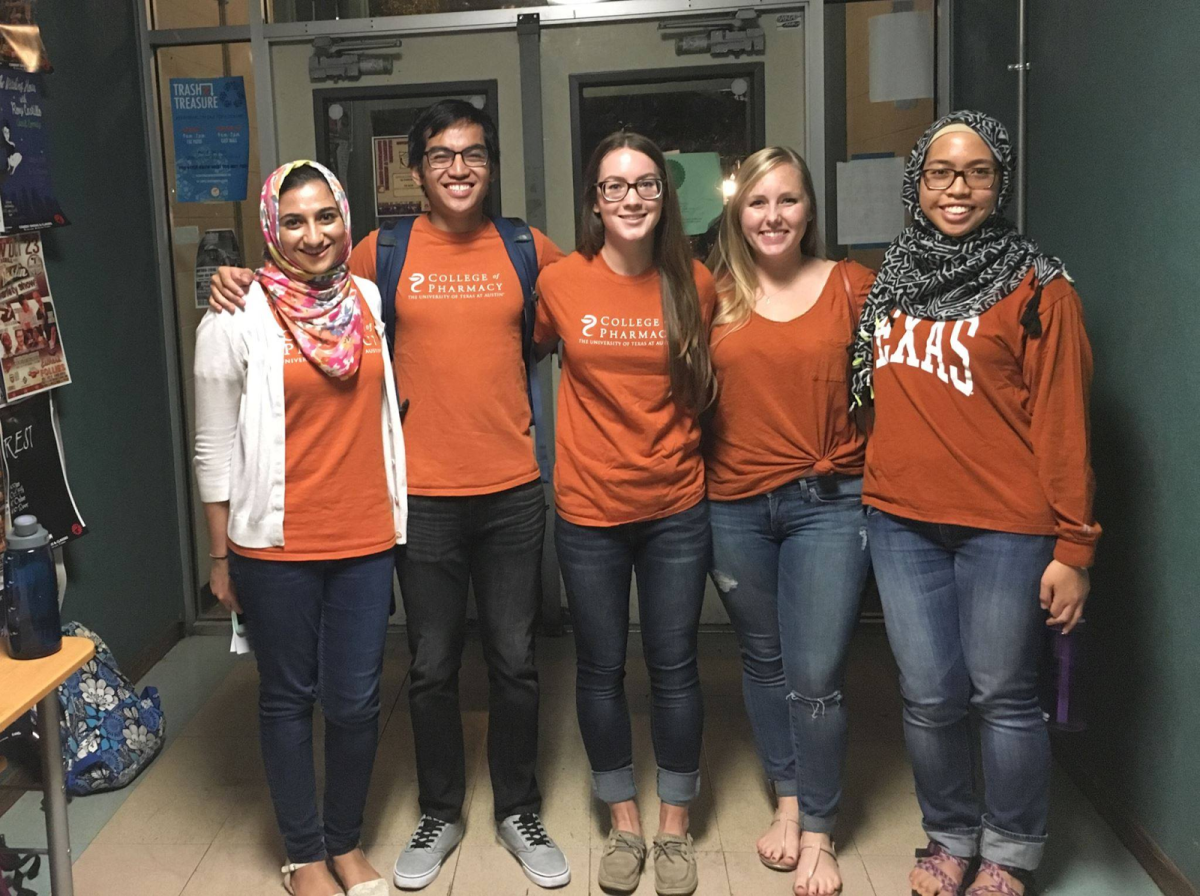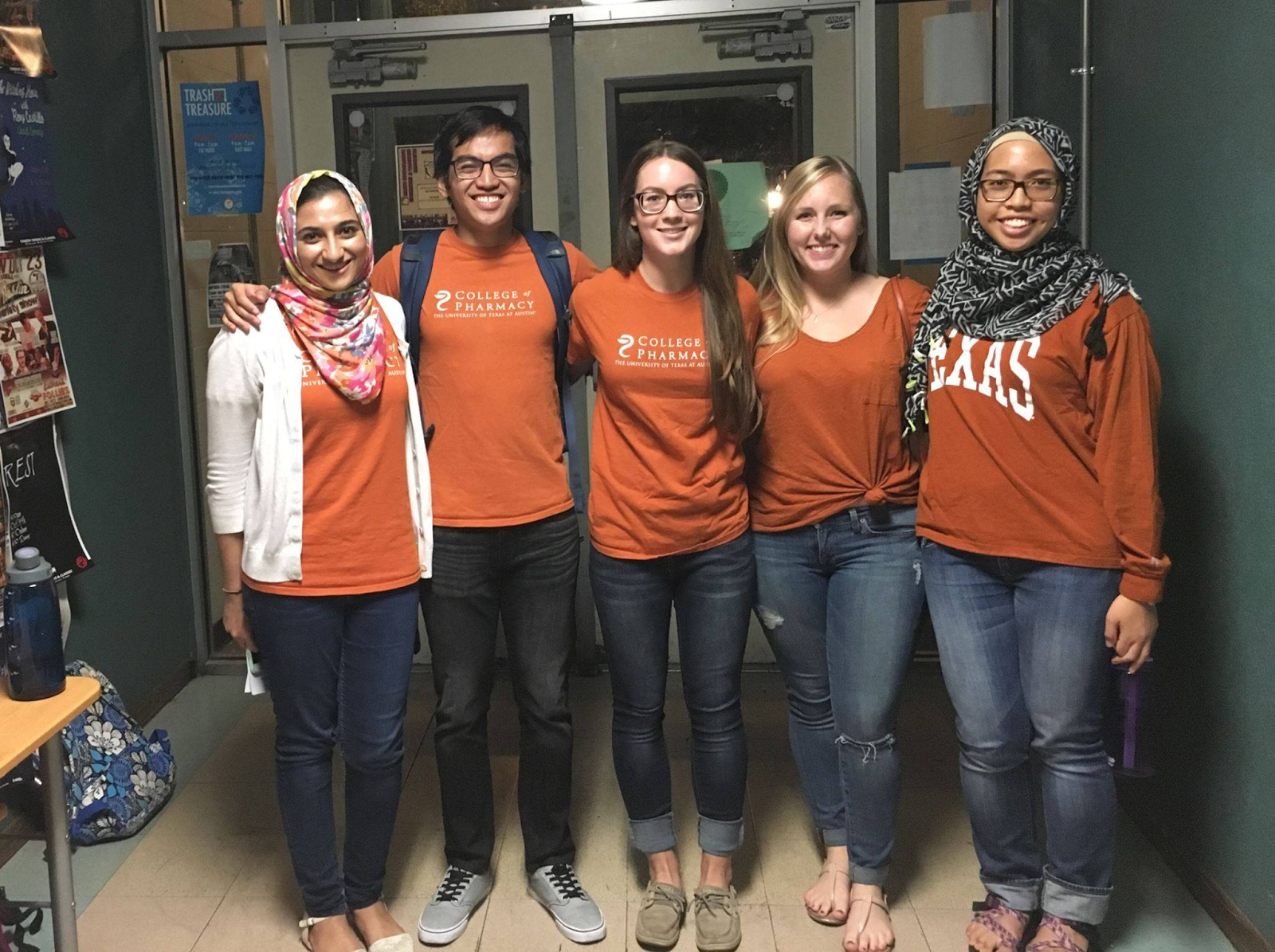On Wednesday, April 5, College of Pharmacy students from the University of Texas at Austin gave an overdose opioid prevention and response training to the campus community.
Story by Emanuela Schneider
The discussion was part of an effort made by Texas Public Health, a student organization, to promote National Public Health Week around campus. These students are part of Operation Naloxone, a collaboration between UT staff and faculty with the Texas Overdose Naloxone Initiative.
Naloxone is a medication used to reverse opioid overdoses. There are various forms of the medication: it can come in vials, syringes, nasal sprays and autoinjectors. Pharmacists can dispense Naloxone without prescriptions. Andrea Laguado, a pharmacy graduate student and president of the Student Pharmacist Recovery Network, pointed out the only downside. “Its actions only last for 30 to 90 minutes, whereas opioids can last for hours and hours,” Laguado said.
Photo courtesy of Operation Naloxone Facebook Page
Laguado started off the discussion explaining the basics of opioids. She discussed how opioids are derived from a plant called opium poppy, where morphine is found. Afterwards, she described how they were initially used as painkillers, but have now become associated with recreational use. “Some of the ones you may be familiar with are morphine, heroin, vicodin, oxycodone, there’s a bunch of them,” Laguado said. She also explained that in 2008, the number of drug overdoses in United States surpassed the number of deaths in car crashes.
JP Sanchez, president of UT Student Chapter of the American College of Clinical Pharmacy, continued the rest of the training. He touched on the possible symptoms of an overdose. “If breathing looks slow, lips or nails are blue. They’re going to feel cold,” Sanchez said. Other symptoms include no movement, little reaction and choking.
Sanchez clarified that Texas does not have medical amnesty, meaning that if there are drugs around when someone dials 911, they could be charged for drug possession or use.
Operation Naloxone had their first official outreach event in September 2016 at a UT Co-op. Since then, the organization has been leaving one box of Naloxone in co-ops and dorms around UT Austin. Sanchez says they have received positive feedback within the community. “We’ve heard from the co-ops that they’re glad they have the kits”, Sanchez said. “Even if no one has ever seen an overdose yet, they’re glad they know how to respond.”












































